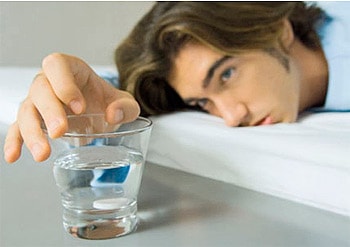Anti-sleep medication abuse and psychiatric consequences
During exam season, students want to be able to stay up late to study without feeling sleepy. Therefore, some of them use anti-sleep pills and patches.
These anti-drowsiness drugs are easily found and purchased online, and contain ingredients such as ginseng, acanthopanax, schisandra, polyscias fruticosa, gynostemma pentaphyllum, glutamine, trimethylxanthin, and vitamins B1, B6, etc. Some types also contain ginkgo biloba extract, magnesium lactate, etc.
These drugs are advertised to help fight drowsiness and nervous tension, make you alert, clear-headed, healthy, and reduce fatigue; help strengthen physical strength and nerve cell activity; help enhance memory, increase concentration and mental work ability... The subjects that often use them are students who are stressed and tired during exam preparation; people who need to concentrate their mind and strength; people who work at night and need to stay up late: night security guards, drivers...
One thing to note is that most of these advertisements only state the uses of the drug without mentioning the possible side effects. This makes many people carelessly buy the drug without knowing that it can be harmful to their health.

And the consequences…
Anti-drowsy drugs are essentially drugs that increase alertness, prevent drowsiness, and help users achieve a state of immediate excitement. However, the abuse of stimulants, patches, or drugs to fight drowsiness will cause many disadvantages for the cardiovascular system, negatively affect health and mental health, and risk disrupting the body's biological rhythm. In the long run, it will cause drug dependence, memory loss, and paralyze the feeling of sleepiness.
Each person needs an average of 8 hours of sleep per day. Prolonged lack of sleep causes fatigue, muscle aches, sunken and blurred eyes. Lack of sleep will significantly reduce concentration and thinking, more seriously will cause tremors in the extremities, over time cause memory disorders, even abnormal behavior and paranoia.
Thus, "suppressing" sleep with drugs or addictive stimulants is not beneficial for mental health. Even situations where it is necessary to use anti-drowsy drugs (nerve stimulants) must be taken with a prescription from a psychiatrist.
According to Health & Life - nt






